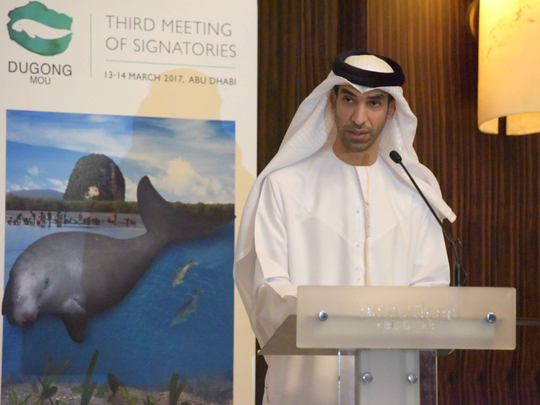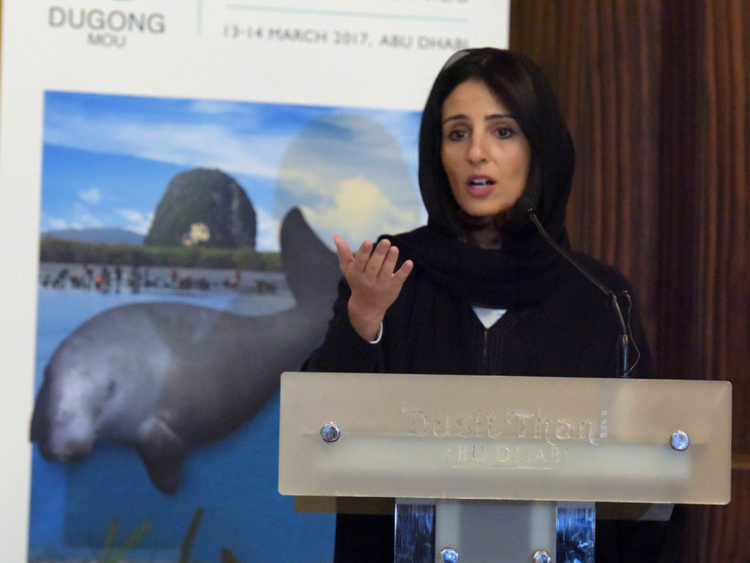
Abu Dhabi: “Dugong diplomacy”, an international effort strongly supported by the UAE to conserve the iconic marine animal, is expected to improve fish stocks in 40 nations across the globe.
Dugongs, found in around 40 countries from East Africa to Vanuatu in the Pacific, support the well-being of around 600 species of marine life and provide nursery grounds for fisheries that millions of people depend on for their livelihood, experts said at an event in the capital on Monday.
As dugongs move across international boundaries, an international effort started by the Convention on the Conservation of Migratory Species of Wild Animals (CMS) initiated a Memorandum of Understanding (MoU) on the Conservation and Management of Dugongs and their Habitats (Dugong MoU), which was signed by 26 nations. Abu Dhabi has been hosting the secretariat of CMS Dugong MoU since 2009.
The city is now hosting the third meeting of the signatories to the MoU, attended by delegates from 23 nations along with the world’s leading dugong and seagrass experts.
The two-day meeting kicked off weeklong events in Abu Dhabi to focus global attention on the need to protect threatened dugongs.
Dr Bradnee Chambers, CMS Executive Secretary, said the meeting hosted by the UAE was a prime example of the type of international ‘dugong diplomacy’ fostered by the long-standing partnership between CMS and the UAE.
Opening the meeting, Dr Thani Ahmad Al Zeyoudi, UAE Minister of Climate Change and Environment, said: “The CMS Dugong MoU is one of many multilateral environmental agreements the UAE has signed to promote international cooperation in the field of wildlife conservation. Our waters are home to more than 3,000 dugongs [second largest after Australia]. As we recognised early on that any possible threat to seagrass beds poses a threat to dugongs, our country’s dugong population is stable.”
He was referring to the fact that dugongs feed on seagrass that serves as the nursery for juvenile fish and shrimps, as well as a habitat for a wide diversity of marine life. These animals actually improve the quality and quantity of seagrass beds through their grazing activities while eating the grass. Seagrass meadows are one of the richest marine habitats on Earth harbouring around 600 species of marine life. Hence, their protection benefits marine biodiversity and contributes to human well-being, according to the experts.
Al Zeyoudi added: “In line with the UAE Vision 2021, we established several marine protected areas. The UAE’s efforts in the field of biodiversity conservation elevated the country’s ranking in the Marine Reserves Sub-Index within the Environmental Performance Index (EPI) published by Yale University from 33rd place in 2012 to first place in 2014 and 2016.”
Razan Khalifa Al Mubarak, Secretary-General of the Environment Agency - Abu Dhabi (EAD), said: “If we can encourage fishing communities to adopt practices that don’t destroy seagrass and accidentally catch dugongs, we will have helped secure the future of dugongs, seagrasses and those communities. In Abu Dhabi, we have recognised this interdependent relationship and wish to share our learning and best practices. To support countries develop a strong scientific basis for achieving this goal, we are very excited to launch the Dugong and Seagrass Research Toolkit in this meeting,” she said.













